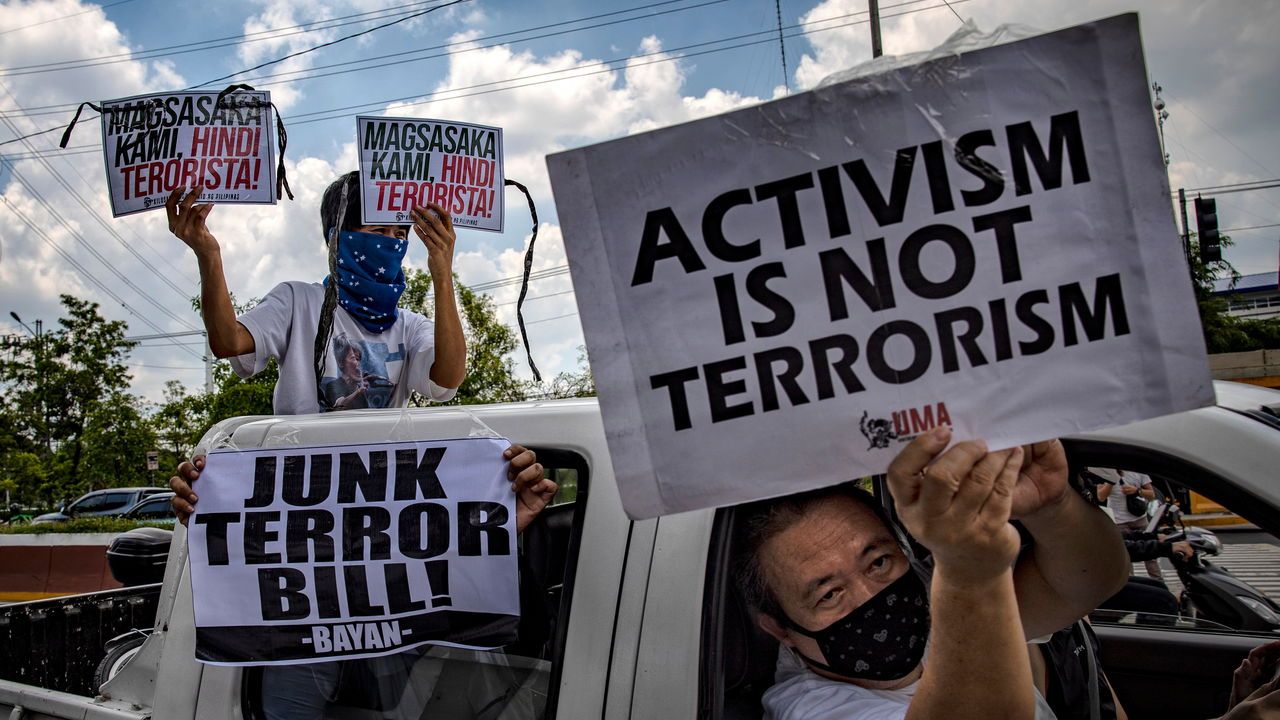How strongmen abuse tools for fighting financial crime
They can get Western governments and banks to crack down on exiled dissidents

In May 27 members of the Community Empowerment Resource Network (CERNET), a Philippine charity, were charged with bankrolling communist rebels. Straight away the case looked strange. A social-media post by police claimed they had jailed Estrella Flores-Catarata, one of CERNET’s associates, who received an award from the UN for her work with indigenous people last year. She has no criminal record and was set free after paying bail. Other charities that support small-scale farmers and help people after natural disasters have also had their top brass charged and accounts frozen for allegedly breaching the Philippines’s Anti-Terrorism Act, a draconian law passed in 2020.
This article appeared in the Finance & economics section of the print edition under the headline “Good cop, bad cop”
Finance & economics July 13th 2024
More from Finance & economics

Europe’s economic growth is extremely fragile
Risk is concentrated in one country: Germany

How vulnerable is Israel to sanctions?
So far, measures have had little effect. That could change

Why companies get inflation wrong
Bosses should pay less attention to the media
What is behind China’s perplexing bond-market intervention?
The central bank seems to think the government’s debt is too popular
How to invest in chaotic markets
Contrary to popular wisdom, even retail investors should pay attention to volatility
Vladimir Putin spends big—and sends Russia’s economy soaring
How long can the party last?
